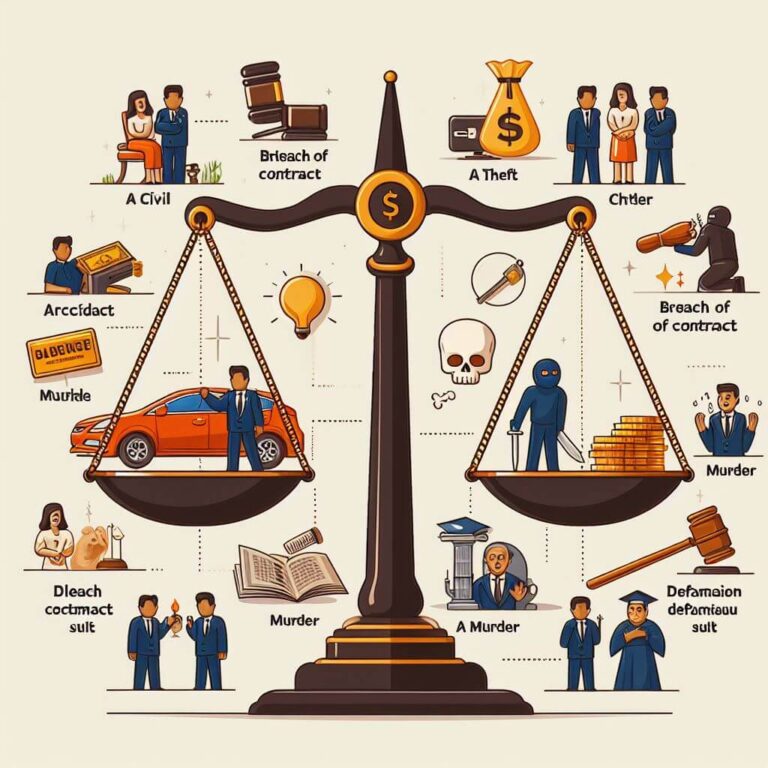In this article we have explained Steps To Appeal A Court Decision In India
Introduction
When a court in India makes a decision that one of the parties disagrees with, they have the option to appeal against it. This means asking a higher court to review the decision. The process can seem complicated, but understanding the steps involved can make it easier. This article simplifies the process of appealing a court decision in India.
Understanding the Basics of Appeal
What is an Appeal?
An appeal is a legal process where a higher court is asked to review the decision of a lower court. If you believe the judgment was incorrect due to legal errors or other reasons, you can file an appeal to have the decision reviewed and possibly changed.
Knowing When to Appeal
Before appealing, it’s important to know if your case is eligible. Not all decisions can be appealed. Generally, you can appeal if there’s a significant error in the application of law or if crucial evidence was overlooked.
Steps To Appeal A Court Decision In India
Step 1: Consult a Lawyer
Firstly, consult with a lawyer who specializes in appeals. They can help you understand whether an appeal is the right step and guide you through the process.
Step 2: Understand the Time Limit
There’s a specific time frame within which you must file an appeal. This period varies depending on the type of case but is usually within 30 to 90 days from the date of the decision.
Step 3: Obtain the Necessary Documents
You will need a copy of the judgment and other relevant documents from the lower court. Your lawyer can help you gather these.
Step 4: Drafting the Appeal
Your lawyer will draft the appeal, stating the reasons why the decision should be reconsidered. This includes pointing out legal errors or overlooked evidence.
Step 5: Filing the Appeal
The appeal, along with the necessary documents, needs to be filed in the appropriate higher court. This could be the District Court, High Court, or Supreme Court, depending on where the original case was heard.
Step 6: Paying the Court Fees
There will be court fees associated with filing an appeal. The amount varies based on the court and the type of case.
Step 7: Attending the Hearings
Once the appeal is filed, you will need to attend the hearings. Your lawyer will present your case, arguing why the decision should be changed.
Step 8: The Decision
After hearing the arguments, the appellate court will make its decision. It can uphold the original decision, reverse it, or send the case back to the lower court for a new trial.
Conclusion
Appealing a court decision in India is a right that can be exercised when one believes there has been a miscarriage of justice. While the process may seem daunting, understanding the steps involved can make it more manageable. Always seek the guidance of a qualified lawyer to navigate the appeal process effectively.
FAQs on Appealing a Court Decision in India
1. What is an appeal in legal terms?
An appeal is a process where a higher court reviews the decision of a lower court. If you’re dissatisfied with a court’s decision, you can request a higher court to examine and potentially change the verdict.
2. Can any court decision be appealed in India?
Not all decisions can be appealed. The ability to appeal depends on the nature of the case and the specific circumstances. Some decisions are final and cannot be appealed.
3. How do I know if my case is eligible for an appeal?
Consult a lawyer to understand if your case is eligible. Eligibility depends on factors like the type of case and the grounds for appeal.
4. What is the time limit for filing an appeal?
The time limit varies but is typically within 30 to 90 days from the date of the decision. Check the specific laws related to your case.
5. Where do I file an appeal?
Appeals are filed in a higher court than the one that made the original decision. This could be the District Court, High Court, or Supreme Court.
6. What documents are needed to file an appeal?
You’ll need a copy of the original judgment, any relevant evidence, and other legal documents. Your lawyer can help gather these.
7. How much does it cost to file an appeal?
Costs vary based on court fees and legal representation. Discuss with your lawyer for an estimate.
8. Do I need a lawyer to file an appeal?
While not mandatory, it’s highly recommended to have a lawyer due to the complexity of appellate procedures.
9. What are the grounds for appealing a court decision?
Common grounds include legal errors, evidence overlooked by the court, or procedural issues that affected the outcome.
10. How long does the appeal process take?
The duration varies greatly depending on the complexity of the case and the court’s backlog.
11. What happens during the appeal process?
The appellate court reviews the lower court’s decision, considering legal arguments and evidence. The court may uphold, reverse, or remand the case.
12. Can I present new evidence in an appeal?
Generally, appeals focus on the evidence presented in the original trial. Introducing new evidence is rare and subject to strict rules.
13. What if I miss the deadline to file an appeal?
Missing the deadline usually means you lose the right to appeal. In exceptional circumstances, you may request an extension, but it’s not guaranteed.
14. Can the decision of the appellate court be challenged?
Yes, in some cases, the decision of an appellate court can be further appealed to a higher appellate court, including the Supreme Court of India.
15. What is a stay order in the context of an appeal?
A stay order temporarily halts the enforcement of the lower court’s decision until the appeal is resolved.
16. How do I get a stay order?
Your lawyer can file a request for a stay order along with the appeal, citing reasons why the lower court’s decision should not be enforced immediately.
17. Can I appeal a decision made by a tribunal?
Yes, decisions made by tribunals can often be appealed in higher courts, depending on the specific legal framework governing the tribunal.
18. Is there a difference between an appeal and a revision?
Yes, an appeal involves a higher court re-examining the decision of a lower court, while a revision typically refers to a higher court reviewing a case for procedural or legal errors without a full re-hearing.
19. What is a legal precedent, and does it affect my appeal?
A legal precedent is a previous court decision that establishes a principle or rule. It can influence the outcome of similar cases, including appeals.
20. Can I appeal a family court decision?
Yes, decisions in family court cases can be appealed, subject to specific laws and regulations.
21. What is an appellate brief?
An appellate brief is a document filed by your lawyer in the appellate court outlining your arguments for why the lower court’s decision should be reversed or altered.
22. How is an appellate court decision made?
Appellate court decisions are made after reviewing the written briefs, hearing oral arguments, and examining the record of the lower court’s proceedings.
23. What happens if I win the appeal?
If you win, the appellate court may reverse the lower court’s decision, order a new trial, or make other orders as deemed appropriate.
24. What happens if I lose the appeal?
If the appeal is unsuccessful, the lower court’s decision stands. Further appeal options may be limited.
25. Can I appeal a criminal conviction?
Yes, criminal convictions can be appealed if there are grounds such as legal errors or issues with how the trial was conducted.
26. What is a writ petition, and how does it relate to appeals?
A writ petition is a direct request to a higher court, such as the High Court or Supreme Court, challenging the legality of a decision or action. It’s a form of appeal but focuses on constitutional or legal rights.
27. Can I appeal a civil judgment?
Yes, civil judgments can be appealed on various grounds, including errors in applying the law or factual findings.
28. What is the role of the Supreme Court in appeals?
The Supreme Court is the highest appellate court in India. It hears appeals on substantial questions of law from the decisions of the High Courts.
29. Can the public access appellate court hearings?
Generally, appellate court hearings are open to the public, but there may be exceptions based on the case’s sensitivity.
30. Where can I find more information about appealing a court decision?
Consult a lawyer for advice specific to your case, and refer to legal resources or government websites for general information on appellate procedures.














